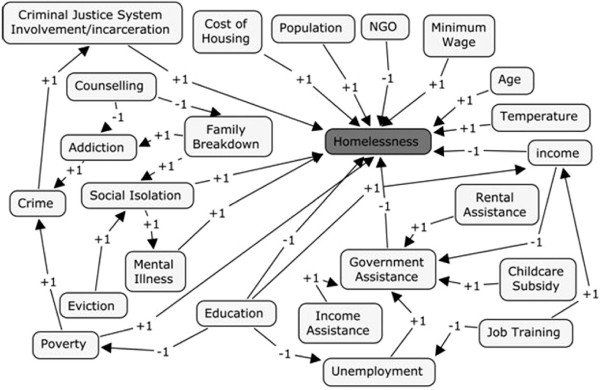The Trouble with Jesus
by Constance Hastings
The Trouble with Jesus is he used graphic and exaggerated devices
to teach his slowest students.

In some ways, Jesus, your radical messages are just what we need. You just said that welcoming children is just like welcoming you. Nice image there. But this time, it’s like you’re pushing radicalization, sending your followers off the deep end. Cutting off one’s hands or feet, gouging out the eye so you’re good enough to get access to your Dad’s Kingdom? Calling people to self-mutilation isn’t going to garner many likes on your page with this kind of talk.
Ok. Know that a few things are going on here. First, Jesus is majorly frustrated with his tribe of trainees. Second, you have to understand the language of first century teaching. And then there is being unfamiliar with the geographical context from which he was speaking. Wrap these around your head, and you may have a better sense of what Jesus was saying here.
Some Days Your Head Just Hurts
First off, like you said, Jesus had just tried to help the Twelve get hold of what was important in a lesson on who was the greatest. “Anyone who wants to be the first must take last place and be servant of everyone else.” Nicely said. But he went further and painted the picture for them. He took a small child in his arms to show them what that would look like.
So did any of these guys start a preschool after that? No, one of his best guys, John, starts whining that someone else was using Jesus’ name (that is, calling on his power) to exorcise the demonic. Not a small feat, by any means you measure a miracle. But John wanted that guy to cease and desist.
“Don’t stop him!” Jesus’ fist likely slammed his own forehead. Deep breaths needed here. Here was verifiable proof that the message was getting out, yet these dimwits couldn’t see it for what it was. Elitism still infected them. They wanted to control the show. Jesus calls it for what it is. “Anyone who is not against us is for us.” Get over this territorial power play.
Here’s the thing. All of this happens while Jesus still has that kid on his lap. John’s own childish behavior didn’t quite connect with what Jesus was trying to get across. So Jesus tries again.
Overstate the Case
This time he pulls out the sledge hammer of discourse: exaggeration, hyperbole, going beyond the black-and-white of the matter into full color. People of this day knew the technique. All teachers used it if there was something of major truth and import to be learned. Today it sounds like overkill, but hey, it’s still remembered, so it works now as well.
The lesson was what you do, how you live, talk, relate, do business, treat others whether they’re friends or enemy, has impact on what others believe and their faith in Jesus specifically. But these guys were as dense as lead. So Jesus beats it into them.
Referring to the child, Jesus tells them if you in any way cause one of these “little ones” (interpret that both as small kids and new believers) to lose faith, you are going to regret it. In fact, it’d be better to be thrown into an ocean with a millstone (only a ton or so in weight) tied around your neck. So watch how you live. And if there’s anything that draws you into behaviors that separates you from others or God, cut off the offending member, even if it’s your own hand, foot, or eye. Yeah, he said that.
Now note that the ancient Hebrew law prohibited cutting one’s own body. So again, hear how Jesus was talking in the moment. Utilizing hyperbole, he drew an exaggerated image to get across what he was saying. It shows he meant it in a big way. But everyone who was there heard if for what it was, not as a literal prescription for right living, but as a literary device to intellectually, emotionally, and spiritually be heard.
Jesus kept going. Yeah, mess with these, the most vulnerable and fragile, and I say it again, you’re going to regret it in a big way. As in, “It is better to enter the Kingdom of God half blind than to have two eyes and be thrown into hell where the worm never dies and the fire never goes out.” Conjure up your best movie image here of hellfire and eternal agony. Jesus could have directed that film.
Was this though another example of hyperbole? Hmmm, good question. The scene is horrific even in just the imagination. Still, the Greek word for “hell” in this passage is Gehenna, which was an actual place south of Jerusalem. If ever there was a hell on earth, this would fit the image.
A Place of Death and Rot
For the most part, Gehenna was a trash heap but not just of garbage. Sure, worms and maggots thrive in these sites. Here though also were the remains of infants that had been sacrificed to pagan gods. The Jews were so repulsed by this place that not only did they use it for their refuse but also for the disposal of dead animals and executed criminals. So as not to contaminate the air with decomposition, it was necessary to maintain fires to consume the dead bodies. When Jesus spoke of it, the people knew it for real and not an exaggeration. No one wanted to be near this place, let alone be thrown into this place of eternal regret.
Twisted Teaching
Then Jesus takes a turn. “Everyone will be salted with fire.” Again, his immediate listeners knew the underlying reference. There is fire which speaks of the pain, sorrow, and regret of a life lived only for oneself, leaving out God and others. And then there is the fire which refines and purifies. Salt was not used for mere flavoring but was a major ingredient for preservation of food. To go through fire and to be salted was to become who one is created to be with God and in service for others.
So love mercy, do justice, be in love with God. Be an influence for good and not for what is harmful and destructive in the world. Above all, love the “little ones”, the neglected, the forgotten, the most vulnerable, those whom Jesus loved best.
Jesus was pretty vivid in this lesson he tried to give his followers. It’s graphic and has immediate, future, and eternal consequences. He meant it though, for the world has its stake in this kind of living he taught.
“You must have the qualities of salt among yourselves and live in peace with each other.”
The Trouble with Jesus: Considerations Before You Walk Away by Constance Hastings
Support Your Local Independent Bookstores and Click Here!
Subscribe to The Trouble with Jesus Blog Here.












